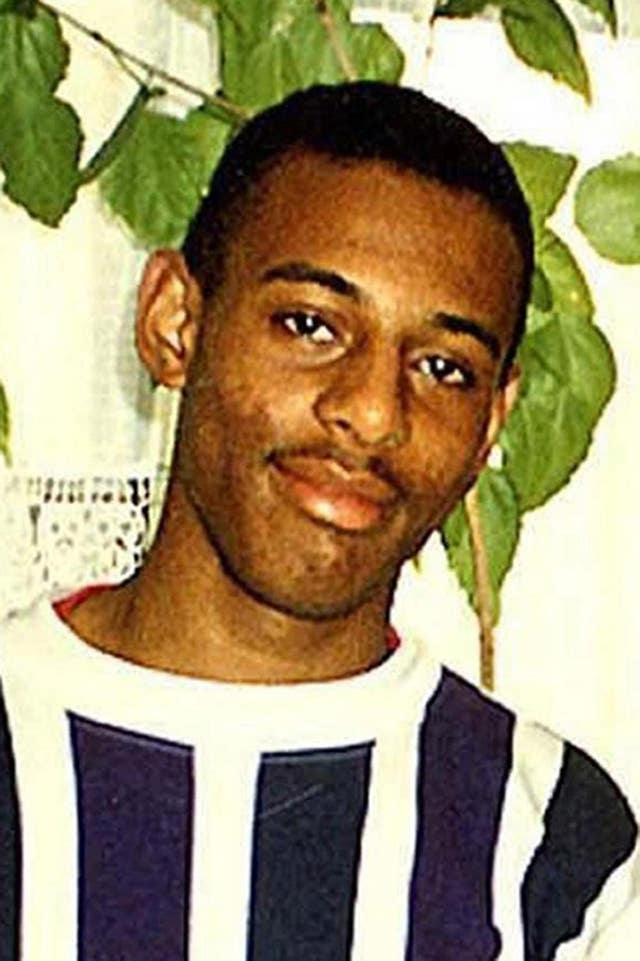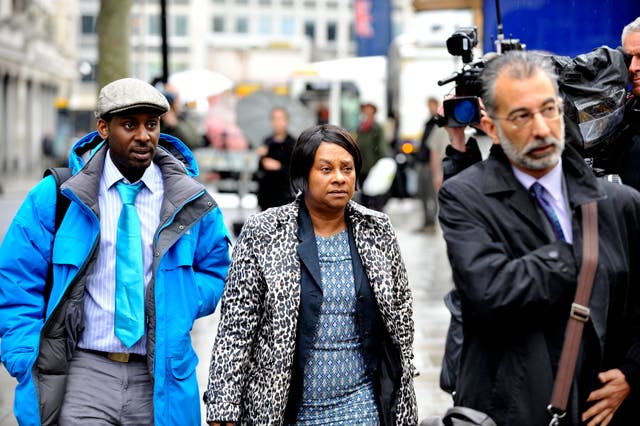A leading lawyer has claimed institutional racism is “thriving” in the Metropolitan Police, nearly 25 years on from the murder of Stephen Lawrence.
Imran Khan, who has represented Stephen’s mother Baroness Lawrence since a few days after her son’s death, said a new documentary series on the murder and its aftermath had left him feeling betrayed by the police.
The racist killing and the botched initial murder investigation led to a public inquiry that in 1999 branded Scotland Yard institutionally racist.

Speaking at a screening of the first part of the series, he said: “We had a number of police officers who I had assumed had moved forward with us, who if they had blinkers on then they finally understood what racism was about, or institutionalised racism was about.
“Having viewed all three programmes I feel betrayed by those officers. I feel now that the sense of progress that I think had been made with police officers understanding racism and institutional racism goes back to simply lip service. I think it’s now hidden far better than it was but it exists and it’s thriving and I think there’s a lot more that we’ve got to do.”
The QC believes the programmes “will reignite the feeling among the black community that the police haven’t changed at all.”

“Because I think we’re being fed a lie that things have changed, it has a little bit but certainly I think at the end of the watching of all three, I think I want to reignite that anger and say we’ve got to hold the Met, the police and the Government to account over this whole process of institutional racism.”
Former detective Clive Driscoll, who led the investigation that saw two of Stephen’s killers Gary Dobson and David Norris finally convicted of murder, said the issue of racism in the police will be “an ongoing thing for a very, very long time”.
“The police need to focus very, very carefully on making sure that they are open and transparent, and if they do come across any discriminatory behaviour then they should come down on that like a tonne of bricks. Otherwise nobody will ever have any confidence in the system or the police, and that makes policing harder.”
A Metropolitan Police spokesman said no one from the force had viewed the series and so could not comment on it specifically.
But they went on: “Stephen’s horrific murder was a terrible act. The Public Inquiry, published in 1999, made a series of recommendations which led to far-reaching changes in the Met’s approach to murder investigation, race crime and staff diversity. The Met has brought two people to justice for this appalling crime.
“The Commissioner has been instrumental in personally improving the response to racist crime in London and enhancing the service we give to London’s black community. She has very clearly stated she will not tolerate racism within the MPS. Our high standards and expectations are made clear when officers and staff join the MPS, and are reinforced during training throughout their careers. The MPS has a clear set of values for its staff and the code of ethics reinforces the standards of behaviour expected.
“The Metropolitan Police Service employs over 40,000 people who engage with the public millions of times each year. The overwhelming majority of those contacts are carried out with professionalism and courtesy. In the small amount of cases when this is not the case, the Directorate of Professional Standards carries out a thorough investigation to ascertain the facts of the interaction and where necessary instigate misconduct proceedings. Our officers’ response, when a small minority of their colleagues are found to be guilty of racist behaviour, can leave others in no doubt that there is no place for racism within the MPS.”
The series also addresses claims of police corruption in the original murder investigation, that are now being examined by the National Crime Agency.
Commissioner Dick told the programme: “The Met is a completely different organisation from the one it was when Stephen was killed. If somebody suggests to me that I have corruption in my organisation or I have a corrupt person I will go after that as hard as I can. I think that we are infinitely more open now than we were when I joined, and the reason in large part why we are so much better is because of the Stephen Lawrence Inquiry.”
Prime Minister Theresa May, who as Home Secretary ordered leading barrister Mark Ellison to review the corruption claims, said: “I think that the Stephen Lawrence case did move things forward, I think we have seen changes of attitude in the police but I think there is still more for us to do.”
– The three-part series Stephen: A Murder That Changed A Nation will start on BBC One on April 17.






